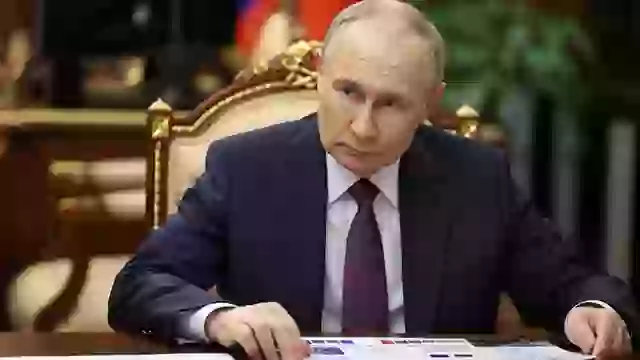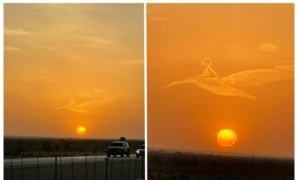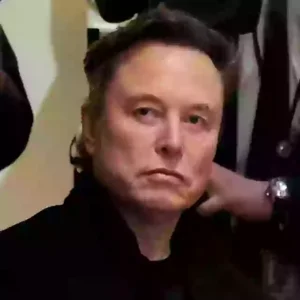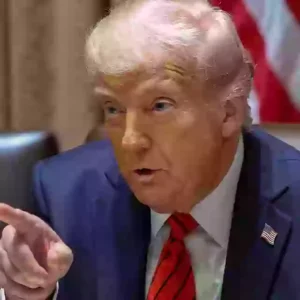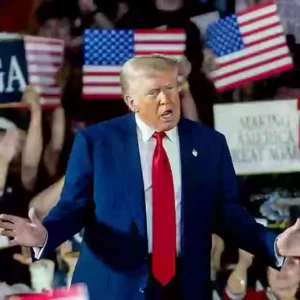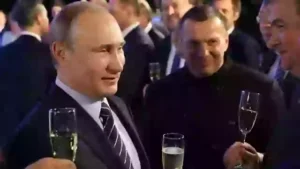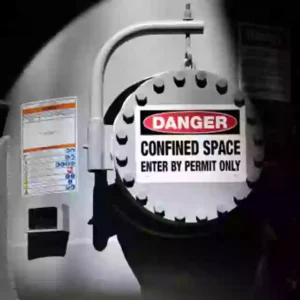As tensions between Russia and the West continue to deepen, Russian President Vladimir Putin issued his most pointed threat in months, warning that Germany is a single miscalculation away from provoking a catastrophic global conflict. His comments, made during a recent national security meeting, have triggered alarm across Europe and beyond, signaling an escalation in the psychological and strategic battle over Ukraine.
A Chilling Statement
In a forceful address to military and intelligence officials, Putin accused Germany of “drifting dangerously close to direct involvement” in the war in Ukraine. He pointed specifically to discussions around supplying Taurus cruise missiles to Kyiv—a proposal debated in Germany’s Bundestag but not officially enacted.
“Germany must understand that a single wrong move—just one—could be seen as a declaration of war,” Putin warned. “If German weapons or operators assist in striking Russian territory, the consequences will be beyond what Europe is prepared to face.”
Though veiled in diplomacy, the message was unmistakable: Germany, through its support of Ukraine, is walking a tightrope that could spiral into global war.
Why Taurus Missiles Matter
The Taurus missile system is not just another piece of military hardware. With a range of over 500 kilometers and deep-strike capabilities, it can destroy heavily fortified targets—including infrastructure far from Ukraine’s frontlines. Russia claims such systems would require not only Western hardware but Western personnel, a step they interpret as crossing the line from support to co-combatant.
German leaders have so far resisted Ukraine’s pleas for Taurus missiles, concerned about precisely this risk of escalation. However, public and political pressure within Germany is mounting, especially after Russia’s increased attacks on civilian targets in Kharkiv and Kyiv.
Germany Responds: Treading Carefully
German Chancellor Olaf Scholz responded to Putin’s remarks with a measured tone, affirming Germany’s commitment to supporting Ukraine while “avoiding steps that would directly involve us in the conflict.”
German officials have emphasized that all aid provided so far has been within the boundaries of NATO’s defensive posture. Nonetheless, the warnings from Moscow appear to be aimed not just at Berlin, but at all NATO members, suggesting that any nation enabling long-range attacks on Russian soil may face serious retaliation.
A Shift in Putin’s Rhetoric?
Analysts have noted a distinct change in tone from Putin in recent weeks. While he has often used harsh language to denounce the West, his latest comments carried a more urgent, almost personal warning. Some interpret this as a sign that Russia’s confidence in controlling the trajectory of the war is weakening.
“Putin’s rhetoric has shifted from strategic to survivalist,” said Helena Makarov, a Russian security expert based in Geneva. “He’s drawing red lines around every key NATO state now—not because he’s strong, but because he’s concerned those lines are about to be crossed.”
NATO’s Quiet Response
While NATO as an alliance has not directly responded to Putin’s comments, internal discussions are reportedly underway about the implications of continued arms deliveries. The alliance has been cautious to balance support for Ukraine without provoking Russian escalation, especially in light of recent nuclear exercises conducted by Russia.
NATO Secretary General Jens Stoltenberg has reiterated that the alliance will defend all member states “against any aggression,” but has stopped short of commenting on the specific issue of missile deliveries.
Russian Strategy: Escalate to De-Escalate?
Putin’s warning fits a familiar pattern known in military doctrine as “escalate to de-escalate.” In this strategy, threats of overwhelming force—including nuclear options—are used to deter adversaries from actions seen as unfavorable.
However, some Western officials warn this approach could backfire. “When every red line becomes a bluff, the risk is that one day someone calls it,” said a senior NATO diplomat. “Then what happens?”
The Nuclear Specter Returns
Putin’s reference to possible retaliation has reignited fears of nuclear confrontation. Although no explicit threat of nuclear weapons was made, Kremlin-linked figures like former President Dmitry Medvedev have spoken openly about their use if Russia’s “strategic interests” are threatened.
This backdrop of nuclear insinuation has raised the stakes significantly for European countries, especially those on NATO’s eastern flank. Poland, the Baltics, and even neutral countries like Finland are now investing more heavily in civil defense and military readiness.
Is Germany Prepared?
Germany has found itself in a precarious position. Long considered reluctant to engage militarily after WWII, Berlin is now at the center of the debate over European security. While its population remains divided on how far to go in supporting Ukraine, recent polls show a growing willingness to support more assertive measures—if carefully framed as defensive.
Still, the government is aware of the historical and strategic sensitivity of being perceived as a lead actor in a war against Russia. The memory of past German-Russian conflicts looms large in both countries, and Putin has strategically invoked that history to sow hesitation in Berlin.
The Bigger Picture: A Global Chessboard
This warning to Germany is not happening in isolation. It’s part of a broader campaign by the Kremlin to discourage Western unity and sow discord among NATO members. By threatening one, Russia hopes to intimidate all.
But so far, the strategy has achieved limited success. If anything, it has hardened resolve across Europe, where leaders now see the war in Ukraine as not just a regional crisis but a global showdown between democracy and authoritarianism.
Conclusion: A Critical Moment in European History
As Vladimir Putin sharpens his rhetoric and Germany wrestles with its response, Europe stands at one of its most dangerous crossroads since the Cold War. The threat of World War III, once unthinkable, is now being spoken aloud by world leaders.
Whether these are empty threats or signals of a more dangerous future depends on what happens next—in Berlin, in Kyiv, and in Moscow. For now, the world watches, waits, and hopes that a wrong move does not become the beginning of something irreversible.
